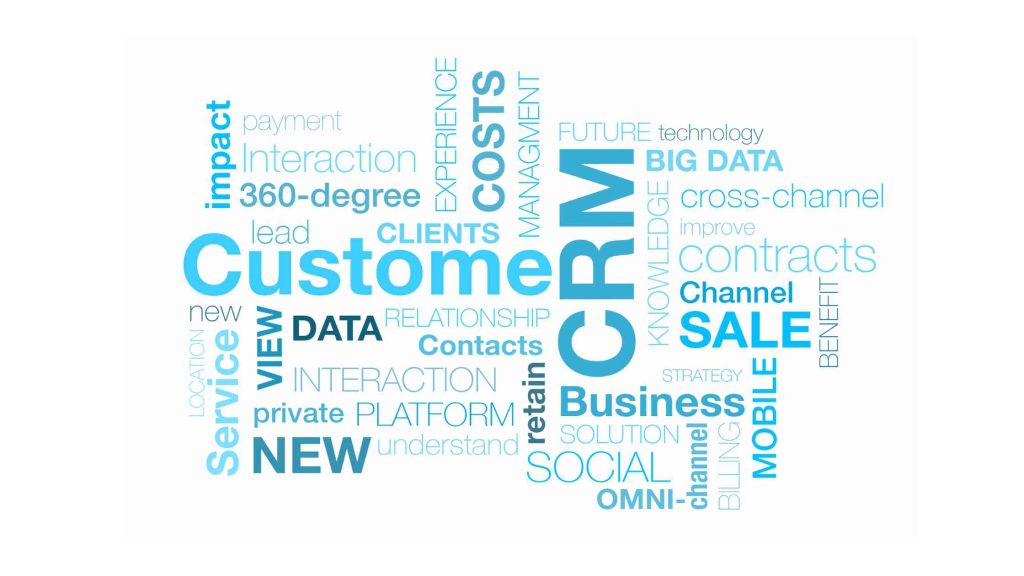CRM directs to instruments, techniques, and technologies businesses use to manage their relations with possible clients. Customer Relationship Management aims to help companies to build and maintain strong, long-term relationships with their customers by understanding their needs, preferences, and behavior. We will see the best practices for CRM software development that can help companies to succeed.
Benefits of CRM for SMBs:
CRM can be valuable for small and medium sized businesses, because it allows them to:
Organize customer data:
CRM software allows small businesses to keep track of all their customer interactions, including sales, customer service, and marketing activities. It enables them to create a complete picture of each customer’s history and preferences, which can be used to tailor future interactions.
Improve customer communication:
Small businesses can communicate more personalized, increasing engagement and loyalty by entirely viewing a customer’s history and preferences.
Automate tasks:
Many CRM tools have features that help small businesses save time and streamline their operations. For example, they can automatically send follow-up emails after a purchase or remind salespeople to follow up with a prospect.
Analyze customer data:
CRM tools can also give small businesses valuable insights into customers’ behavior and preferences. By analyzing this data, companies can identify trends, anticipate needs, and make data-driven decisions to improve customer experience.
CRM can help small businesses improve customer relationships, increase customer loyalty, and drive growth. Customer Relationship Management software has become essential for companies to manage customer interactions and improve sales performance.
Best practices for CRM software
Best practices for CRM software solution for companies to succeed:
Define Your Goals and Objectives
Before starting the development process, it’s essential to define the goals and objectives of your CRM software. Decide what you want to perform with your CRM software, such as increasing sales, improving customer satisfaction, or automating customer support. It will help you design the CRM software to meet your needs and ensure it aligns with your business goals.
Involve All Stakeholders
Involve all stakeholders in the CRM software process, including sales and marketing teams, customer support, and IT. It will help ensure that the software meets the needs of all departments and is designed to streamline their workflows. It also provides that everyone is on the same page and that there is a collective effort toward achieving business success.
Choose the Right CRM Software Development Methodology
Choosing the proper CRM solution methodology is crucial to the project’s success. Agile methodology is often preferred for CRM solution development, allowing flexibility, collaboration, and continuous feedback. This approach enables frequent releases and iterations that can be tried and filtered founded on user feedback.
Focus on User Experience
The success of CRM software depends on its user adoption. Focusing on user experience and designing an intuitive and user-friendly interface is essential. Ensure the software is easy to use and the features and functions are well-organized and clearly labeled. It’s also necessary to provide training and support to users to ensure they are comfortable using the software.
Ensure Data Security and Privacy
Data security and privacy are critical for businesses that handle sensitive customer data. Ensure that your CRM solution meets industry-standard safety and privacy requirements. Implement data encryption, access control, and regular data backups to prevent data loss and unauthorized access.
Integrate with Other Systems
CRM software needs to integrate with other business systems, such as marketing automation, sales automation, and customer support systems. Integration helps ensure that data is shared seamlessly between systems and that workflows are streamlined. Choose a CRM solution that easily integrates with other systems, or customize it to fit your integration needs.
Test and Refine
Testing is crucial to the success of CRM software development. Test the software thoroughly before releasing it to ensure it meets the requirements and is free of bugs and errors. It’s also important to collect user feedback and refine the software based on their feedback. Continuous improvement and iteration will help ensure that the software meets the evolving needs of your business.
Conclusion
Acumatica’s CRM software represents a game-changer for businesses seeking amplified customer relationships and operational excellence. Its intuitive interface and robust features streamline processes and cultivate deeper insights, enabling companies to tailor experiences and drive growth.
With its scalable design, Acumatica catalyzes organizational transformation, propelling businesses towards heightened efficiency, customer-centricity, and sustained success in today’s competitive landscape.

Vijay comes with a vast experience in ERP and enterprise solutions space with about 20 years of experience in various packaged application like Acumatica, SAP, Orion, Salesforce.com, SugarCRM and, SalesLogix.

